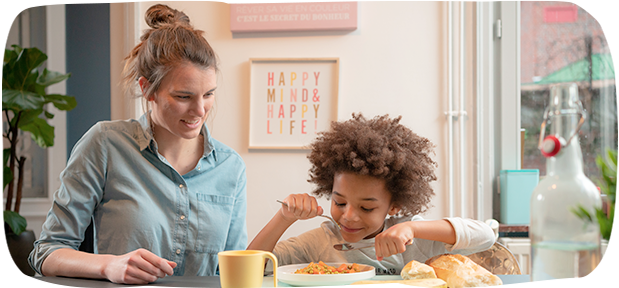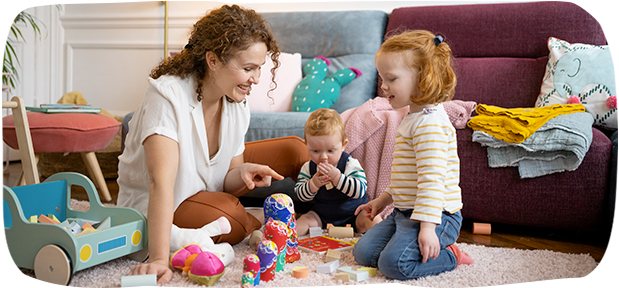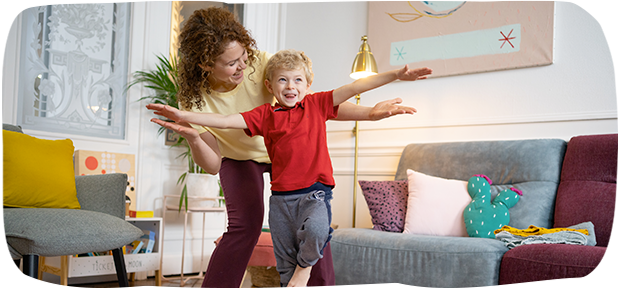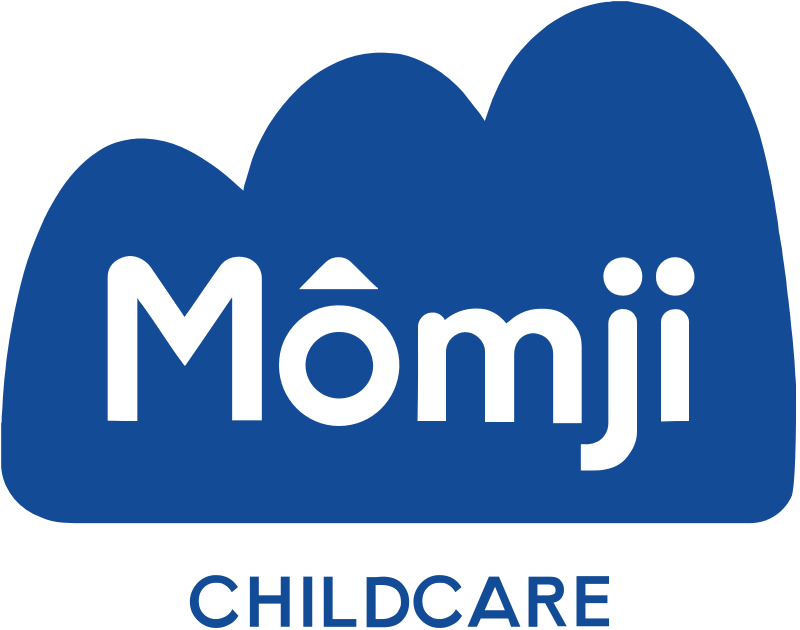For a few years now, positive parenting or gentle parenting has been gaining ground as an alternative to the traditional education model. Some parents swear by this method, others see no interest in it. In any case, here are a few elements that could help you form your own opinion on the subject.

The origins
Non-violent communication
The foundations of gentle parenting can be traced back to the 1960s when the American psychologist Marshall B. Rosenberg developed non-violent communication (NVC), which allows us to try to resolve conflicts without using force or blackmail. A revolution for its time.
The child's rhythm
Many psychologists were inspired by his method to enable parents and children to communicate more serenely. The phenomenon continued to spread throughout the world, notably with Maria Montessori, who placed the child's rhythm at the heart of her educational approach.
The popularity of the movement
In France, the trend towards positive education or gentle parenting has been highlighted by authors such as Isabelle Filliozat and Catherine Gueguen, and alternative educational trends have developed thanks to the wider dissemination of Montessori's pedagogy, or more recently with Céline Alvarez’s.
"Help me to do it myself" would sum up the concept. The main idea is to help your child gain autonomy at different stages of development.
- 0 to 3 years : the child still needs the adult to do things with him
- 3 to 6 years : the child needs to be shown how to do things himself
- 6 to 12 years : the child needs to be helped to think for himself
More and more parents are convinced by this method, which seems simple but still requires work and limits. Indeed, the presence of an educational framework is fundamental and not always easy to establish (and to maintain).
The foundations

Neuroscience as an answer
In positive education, the parent must listen to his child, his feelings and follow his rhythm. This does not mean that there are no rules. On the contrary, young children need a framework, it reassures them and allows them to grow up serenely. On the other hand, shouting, threats, spanking, orders or punishments should be avoided and neurosciences can explain why.
Many researchers have realised that the way we address our children influences their behaviour and development. Mirror neurons are brain cells that get activated in the same way when we perform an action or when we observe someone else performing that action. By reproducing the actions they have seen you do, children learn. So if you yell a lot for example,, the child will naturally do the same.
Nevertheless, when an adult yells at or punishes a child, the child's brain will immediately freeze. They will react out of fear and aggression and not by understanding the situation. The adult will therefore not obtain the desired result.
Embrace your emotions
Naturally, if your child has decided to throw his plate of mashed potatoes on the floor or draw on the walls with a red marker, it is difficult not to lose your temper. However, it is important to remember that young children like to test and experiment with things.
When faced with this kind of situation, it is best to take a deep breath, exhale slowly and share your feelings with your child. "I'm angry because I’ve spent a lot of time making this mashed potatoes for you as I know you love it so much" or "I'm sad because I had tidied up everything so it would be clean for our meal". It is important to both name the emotion and explain why you feel it. The child will understand very well what you are saying and will certainly avoid doing it again.
Listen to the child
If your child is having a tantrum, there is no need to tell him to stop or to threaten him. He cannot hear you. At this precise moment, he needs to express his anger, his sadness. Let him welcome his emotions.
When he calms down a little, you should not hesitate to help him put words to his feelings, thus helping him to better understand what happened. "What did you feel? Did your stomach hurt a little bit ? Did yout body got warmer ? Did you feel like kicking ?" Empathy is essential.
Sometimes the child's reactions seem incomprehensible to us, but keep in mind that he or she is still too young to express rationally what is upsetting them. It is up to you to help them, by using this signal as a clue to understand their frustration and to establish a framework with them. This can be : giving them a cushion or a soft toy to hit when they are angry, a blanket to confide in or a story to read when they are sad... The solutions are as diverse as the children themselves.
Trust
For children to become autonome, we must learn to trust them. This is easier said than done when you see them trying to climb on high structures in the playground. Try not to say "you will fall" and try "you can fall" instead. You are warning them of the danger (which is your role) but not restricting them. The more the child finds solutions by himself/herself, the more he will become autonome and self-confident.
If your 3-year-old decides to tackle the structures for 6-year-olds or older, it goes without saying that you will not let him/her do so. But don't forget to talk to them, to explain, to show him/her why it is not (yet) suitable for him.
To go further…

Be tolerant…
... with yourselves ! Parenting is hard. Nobody gives you a manual in the maternity ward after the birth. No instructions, no manual for this baby that has just joined you. And even though the bookstores are full of books on the subject, every child is different and what works for your best friend's daughter will not necessarily work for your son.
Not being able to stop yourself from shouting, feeling guilty because this time you didn't manage to keep your cool and putting incredible pressure on yourself, will not help. Nobody is perfect. Listen to yourself, and trust yourself. Trust yourself and trust your child.
Books about positive parenting
- How to Talk So Kids Will Listen & Listen So Kids Will Talk, Adele Faber and Elaine Mazlishv
- Positive Discipline, Jane Nelsen
- Parent Effectiveness Training: The Proven Program for Raising Responsible Children, Dr Thomas Gordon
- How to Talk so Little Kids Will Listen: A Survival Guide to Life with Children Ages 2-7, Joanna Faber and Julie King




